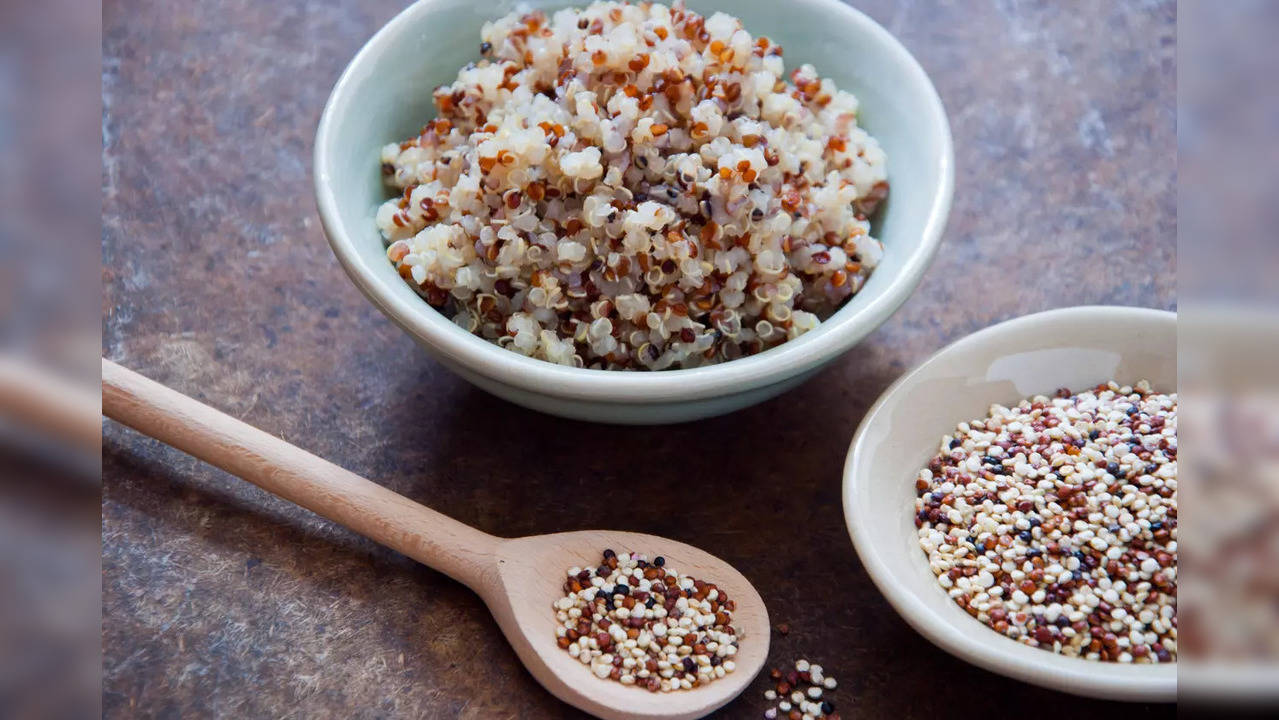Not a fan of quinoa? Its weight loss benefits will change your opinion
In terms of nutrition, one cup of cooked quinoa contains 222 calories, four grams of fat, 39 grams of carbohydrates, five grams of fibre, and eight grams of proteins.

Lean meats like chicken and turkey and several low-calorie vegetables go well with quinoa.
Photo : iStock
New Delhi: Facts first – quinoa is a seed, not a grain. And when it comes to weight loss, this one is a wonder food that should be an important part of your diet. In red, black and while varieties, quinoa is one of the healthiest foods in the kitchen loaded with vitamins, fibre, potassium, phosphorus, riboflavin, copper, iron and magnesium.
In terms of nutrition, one cup of cooked quinoa contains 222 calories, four grams of fat, 39 grams of carbohydrates, five grams of fibre, and eight grams of proteins. Yet, many people frown at it owing to various reasons. Take a look at the top five weight loss benefits of this food that will make you love it.
- A high-fibre food: Quinoa gives five grams of dietary fibre in one cup of cooked seeds. With this, it keeps the digestive tract clear, prevents constipation, improves the gut microbiome, and controls blood sugar levels too.
- A low-calorie food: Despite a bulk of nutrients on offer, quinoa is a low-calorie food that offers satiety in smaller servings thereby inducing weight loss.
- Goes well with meat and vegetables: Lean meats like chicken and turkey and several low-calorie vegetables go well with quinoa. Cooking these together can help come up with a filling, nutritious meal that could induce weight loss in the long run.
- Rich in proteins: Proteins are one of the most important macronutrients when it comes to weight loss. One cup of cooked quinoa gives eight grams of protein. Eating it for breakfast can help reduce calorie intake, induce satiety, curb hunger pangs and eventually support weight loss.
Disclaimer: Tips and suggestions mentioned in the article are for general information purposes only and should not be construed as professional medical advice. Always consult your doctor or a dietician before starting any fitness programme or making any changes to your diet.
Trending:
End of Article
Subscribe to our daily Lifestyle Newsletter!
Related News





How Does Vitiligo Affect Mental Health? Tips To Support Your Loved Ones

What Are The Most Common Eye Problems In Children?

Raspberry Leaf Tea During Pregnancy: Gynaecologists Share Benefits, And Risks Of This Herbal Drink

Spending Too Much Time In AC? 5 Ways Your Air Conditioner Is Affecting Your Health

Weight Loss Story: This Girl Lost 15 Kgs With Intermittent Fasting And Skipping









